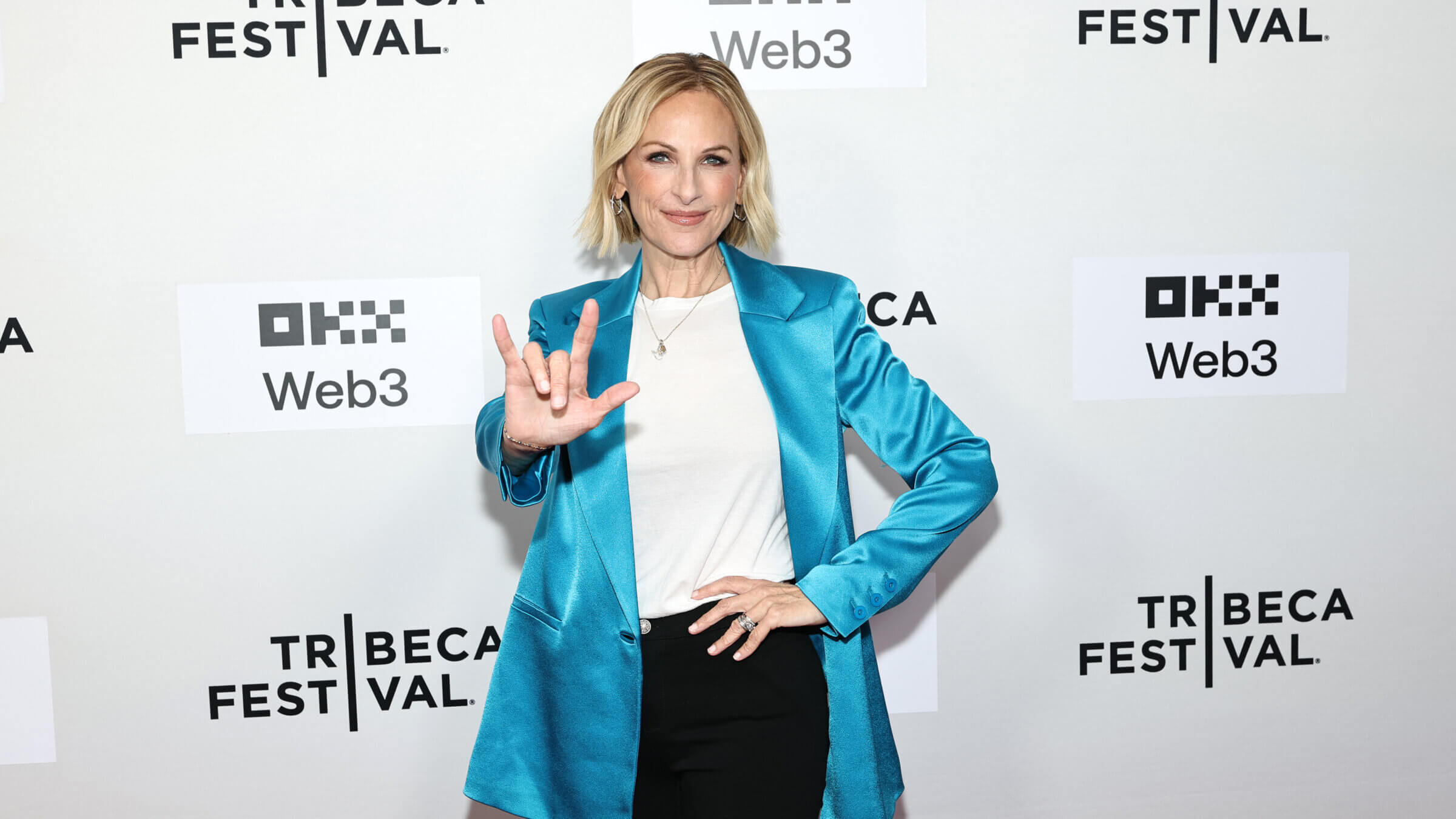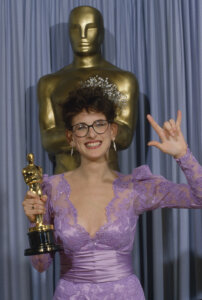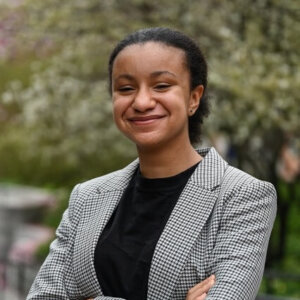Marlee Matlin may not be ‘alone anymore,’ but deaf representation remains sparse in Hollywood
Shoshana Stern’s new documentary goes behind the scenes of Matlin’s life and career.

Marlee Matlin attends the “Marlee Matlin: Not Alone Anymore” premiere during the 2025 Tribeca Festival, June 09, 2025. Photo by Jamie McCarthy/Getty Images for Tribeca Festival
When Marlee Matlin won the 1987 Academy Award for Best Actress for playing the role of Sarah Norman in Children of a Lesser God, she became the first deaf person to win an Oscar. She would remain the only one until 2022, when Troy Katsur won Best Actor for CODA, which Matlin co-starred in. Backstage after the 2022 ceremony, Matlin, getting emotional, signed “I’m not alone anymore.”
This quote inspired the title of the new documentary, Marlee Matlin: Not Alone Anymore, which recounts Matlin’s sudden rise to stardom and the challenges she overcame in her personal life and career. The film is also the directorial debut of Matlin’s close friend, the deaf actress Shoshana Stern, who is known for her roles in Threat Matrix and Weeds.
The women’s friendship helps the interviews feel relaxed and honest as they pull the viewers deep into Matlin’s life. They talk sitting with their feet up on a couch in jeans, their casual exchange a welcome shift from the stiff talking heads interviews that occasionally plague documentaries. They also communicate in their native American Sign Language without any voiceovers, a deviation from the norm in film that preserves the authenticity and autonomy of their unique voices.
At the New York premiere screening at the Tribeca Film Festival, Matlin shared that when American Masters told her they wanted to make a film on her life, she insisted that the director be a deaf woman. The movie pays special attention to issues that could never be fully understood by a hearing person: the emotional burden of Matlin not being able to communicate with her all-hearing family growing up; the struggle to get as many acting opportunities as a hearing actress; and the fight against claims that her Oscar and any success in her career was a result of pity.
Matlin continued to have a successful acting career after 1987, including roles in The Linguini Incident, Seinfeld, The West Wing and The L Word. But, the documentary points out that very few films or shows with deaf main characters followed Children of a Lesser God.
“We’ve still never had those other stories reach public awareness,” Matlin signed at the Tribeca screening. “People always think, ‘Oh, that’s good enough that we have one.’ And that story is a good first step. And it was a good first step back in the 1970s. But we’ve grown. We’ve changed. We’ve evolved as culture and as people. But still, we have this one movie that carries the weight through all this time. And that’s the danger.”
This danger is especially potent when the single story, Children of a Lesser God, patronizes its deaf character. The movie follows a teacher James Leeds (William Hurt) who falls in love with the deaf janitor Sarah Norman (Matlin) working at the school for the deaf and hard of hearing he’s just been hired at. Over the course of the film, he tries to force Norman to speak.
Although billed as a romantic drama, Stern says in the documentary that she never understood why a deaf person would fall in love with someone who couldn’t see them as “right” or “worthy.” Matlin responds that the film was never meant for a deaf audience; it was meant for a hearing one, where the hearing character was presented as a savior.

Despite its flaws, the film helped push deaf issues to the forefront of Americans minds at the time, and turned Matlin into a spokesperson for the hard of hearing community. After winning her Oscar in 1987, Matlin became involved in deaf activism. When the students at Gallaudet University, which caters to deaf and hard of hearing individuals, began demanding their first deaf president, Matlin debated the school’s hearing president Elisabeth Zinser live on Nightline in support of the students. Zinser resigned the next day. Matlin has also advocated for the widespread use of closed captions in media, appearing at an FCC hearing in 2009 about disability access to entertainment.
This new prominence was also accompanied by a pressure to be the perfect representative and Matlin sometimes found herself the subject of ire from the deaf community, such as when she chose to speak while presenting the 1988 Oscar for Best Actor instead of signing.
Not Alone Anymore also explores Matlin’s relationship with her family, her romantic life, her struggles with addiction, and her friendship with Henry Winkler, who she credits with helping start her acting career after he saw her performing at the International Center on Deafness and the Arts. It was Winkler who, years later, would take Matlin in after she got sober at the Betty Ford Center and left her abusive relationship with William Hurt. In 1993, Matlin got married in Winkler’s backyard to her current husband Kevin Grandalski in an interfaith ceremony (and yes, the film does include footage of the glass smashing).
When asked at the Tribeca screening about what the industry can do to create accessibility on sets, Matlin responded, “The simple answer is hire deaf people to run the set when you have deaf actors.”
“There are deaf people who are able to do the work,” Matlin signed. “I think it’s up to us to make noise, to be loud, and for you to be our allies. Your allyship would help make this happen for deaf folks who have exactly the same passion that I have always had as an actor, to do what they want to do, to be able to display their craft.”
Marlee Matlin: Not Alone Anymore will be released at the IFC Center in New York on June 20th. On the 25th, it will open around the country.
















